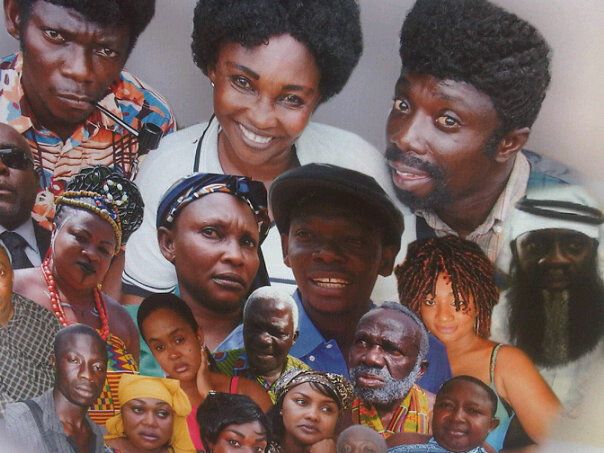Is Kumawood a Movie Industry or a Lame Joke?
- Posted on
- Comment
I can bet a hundred percent of the movies are not produced with scripts. The directors yells ‘Action’, slams a clapperboard (I doubt if they use that),a cameras rolls and everything goes! The scenes are shabbily edited with some unpardonably amateurish subtitles and outdoored for public consumption.
And you call it a movie?

A good film is born out of an appetizing story or theme, expertly-edited shots, befitting costumes, fitting sets and properties; manned by a team of trained technical personnel to provide a driving force. And that is why we unfortunately keep yearning for products from Americans, the Indians as well as the Nigerians. These people, in their movies hit the nail right on the head!
But what do we see in Ghana?
This write-up, including other similar pieces are not to condemn the struggles and relentless efforts of movie makers from Kumawood, which has become the rescuer of Ghana’s dying movie industry, but to get the practitioners to recuperate. Kumasi-made films have recently thronged our airwaves and are all over the streets. The industry seems to be growing round the clock. But their surge is indirectly proportional to the quality movies churned out. Ghanians deserve better!
A film is a reflection of our thoughts, images, lives, heritage, emotions and culture, above all. But this is not what is portrayed by Kumawood, as majority of their stories are an absurd display of witchcraft, sorcery manslaughter and blunt-edged comedy that more often than not do not tickle. The average Ghanaian will pull every string to find himself on the soils of America, by reason of what is portrayed in their movies, giving us that appealing desire.
Our stories exacerbate boredom – are plagiarized, coinciding, parallel and so homogeneous that one could watch the first scenes of a local movie and successfully predict the plot.
Suffice it to say that the likes of Emelia Brobbey, Mr. Beautiful, Kwaku Manu, Kwadowo Nkansah, Vivian Jill and other folks such as Mercy Asiedu, Akrobeto are outstanding performers whose talents on set are commendable. That fact is categorically established! Some of these gurus can be matched-up with the actors in the English-speaking category, and the industry within which they operate needs to wake up from its slumber.
I must also admit that there is vibrancy and consistency in their enterprise, which is evident in their regular releases; people are getting employed and revenue is generated. Nevertheless, until Kumawood and other local movie producers give us quality stuff to watch, Ghanaians will continue to patronize the glamor movies as well as the foreign ones – a hard pill to swallow.
In some of these movies, it’s not uncommon to find actors looking into camera, or a boom entering a camera shot, or hearing crew members giggling at an actor’s comic statement or act.
The most regrettable unbecoming feature of some of these movies is the awfully awful awfulness of animations that are added to produce effects. The animations only make up laugh, while we bow in shame in front of our television sets.
As for the sickening titles that are used, the least said about them, the better.
You cannot eat your cake and have it. An attempt to ‘westernize’ the movies by adding English subtitles becomes a good exposition of ‘Robbing Peter to pay Paul’. They are done in what we call direct translation, producing sentences that have no respect for the rules of English Language.
Maybe their productions are done based on the literal definition of a movie as a series of moving pictures recorded with sound that tells a story. This is very likely. Even without evidence I can say with all confidence, backed by conviction that screenplays are not used during productions, hence the sub standards.
Going forward, producers and their teams should improve skills, aptitude and and technical proficiency. They need not settle for anything! The Film Producers Association of Ghana (FIPAG), the Ghana Actors Guild and other institutions must play a more functioning supervisory role in ensuring that what we want is what we get.
We appreciate the existence of films made in Twi and other local dialects. That is originality, and certainly is one of the surest ways of promoting our culture. Production Houses in the Garden City must toe the line and hark to criticisms from connoisseurs, rather than spending years wallowing in mediocrity.










 (Selorm) |
(Selorm) |  (Nana Kwesi)
(Nana Kwesi)